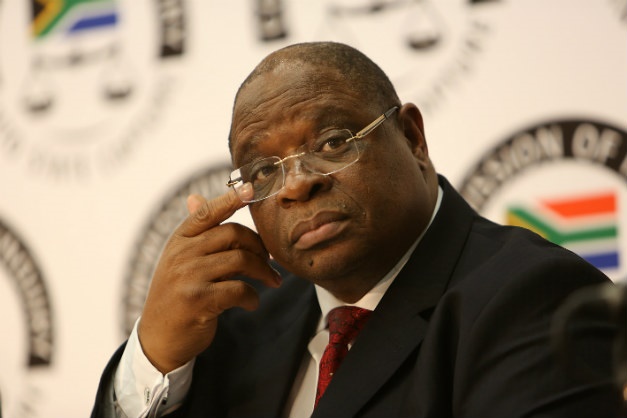
If the creation of the president's special tribunal to recover monies lost to corruption passes constitutional muster, a host of questions still remain: Will ordinary high court procedure be followed, asks Serjeant at the Bar.
The recent announcement by President Cyril Ramaphosa of the establishment of a Special Investigating Unit (SIU) Special Tribunal to expedite hearings for cases designed to recover monies lost to the state from corruption or irregular spending has raised the issue of the constitutionality of this tribunal, the commendable motivation for its establishment notwithstanding.
For this reason it is necessary to review the findings of the Constitutional Court in the case of South African Association of Personal Lawyers v Heath. The case dealt with the legality of a SIU headed by a judge, Willem Heath.
To show how little things have changed, in an early passage of his judgment, Chief Justice Arthur Chaskalson, wrote thus: "Corruption and maladministration are inconsistent with the rule of law and the fundamental values of our Constitution. They undermine the constitutional commitment to human dignity, the achievement of equality and the advancement of human rights and freedoms. They are the antithesis of the open, accountable, democratic government required by the Constitution."
The Heath case involved a judge who was appointed as head of the SIU, a unit which investigated corruption, could refer matters for prosecution and refer matters for civil claims to a special tribunal which fell within the SIU. The question arose as to whether a sitting judge could head such a unit.
The Chief Justice said the following: "Ultimately the question is one calling for a judgement to be made as to whether or not the functions that the judge is expected to perform are incompatible with the judicial office, and if they are, whether there are countervailing factors that suggest that the performance of such functions by a judge will not be harmful to the institution of the judiciary, or materially breach the line that has to be kept between the judiciary and the other branches of government in order to maintain the independence of the judiciary. In making such judgement, the court may have regard to the views of the legislature and executive, but ultimately, the judgement is one that it must make itself."
In Heath the Constitutional Court found that it was not legal for a judge to head a unit such as the SIU. The basis for this conclusion is to be found in the following passage of the judgment of the chief justice:
"They include not only the undertaking of intrusive investigations, but litigating on behalf of the state to recover losses that it has suffered as a result of corrupt or other unlawful practices. Judges who perform functions such as presiding over a commission of inquiry, or sanctioning search warrants, may also become involved in litigation. But that is an unwanted though possibly unavoidable incident of the discharge of what are essentially judicial functions. One of the purposes of the Act is to provide special measures for the recovery of money lost by the state, and in the case of the head of the SIU therefore, litigation on behalf of the state is an essential part of the job.
"The functions a judge who heads the SIU has to perform are all related to the purpose of recovering money for the state, if necessary through litigation. By their very nature, such functions are partisan. The judge cannot distance himself or herself from the actions of the SIU's investigators. The evidence in this case provides illustrations of partisan conduct on the part of investigators of the SIU, which are inconsistent with the judicial office."
If President Ramaphosa's announcement means that the tribunal will be separate from the SIU and will be headed by a judge, it is possible to argue that this differs from the Heath case as the function of the tribunal is not that of investigation nor collection of moneys for the state but purely the adjudication of cases involving claims.
The problem might still arise that the tribunal appears to be a part of the SIU and that the judges are appointed by the president for fixed terms without any contribution from the Judicial Service Commission (JSC) which makes the creation of such a tribunal even more problematic.
But, if the creation of the tribunal passes constitutional muster, a host of questions still remain: Will ordinary high court procedure be followed? Will the judges sit in panels or as single benches and will the tribunal members now be permanently assigned to this body for the full three years so that they are removed from their courts? How many cases are envisaged?
But the larger question remains as to why this is needed. Surely the large high courts could have been employed. The respective judge presidents could have been asked to arrange expedited hearings presided over by experienced commercially orientated judges (which should not be interpreted to mean that the judges appointed to the tribunal are anything other than competent to do this work save that they could do so within their courts).
As the proposal stands it is likely that as the stakes will be high, most decisions will be taken on review to the high court which will subvert the aim of expedition. Sometimes the tried and tested way works best: in this case the use of the high courts on the basis of expedited hearings.
- Serjeant at the Bar is a senior legal practitioner with a special interest in constitutional law.
Disclaimer: News24 encourages freedom of speech and the expression of diverse views. The views of columnists published on News24 are therefore their own and do not necessarily represent the views of News24.




 Publications
Publications
 Partners
Partners























